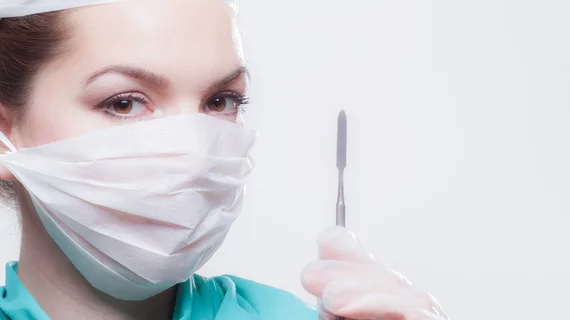Ultrasounds performed by orthopedic surgeons on-par with MSK radiology exams, study finds
An ultrasound performed by a surgeon is just as accurate as an exam completed by a radiologist specialist for detecting a rotator cuff tear, according to a recently published study.
In fact, surgeon-performed scans were also on par with rad specialists’ preoperative MRI exams, researchers reported in the International Journal of Orthopedics. And ultrasounds undertaken in the surgical department were more accurate than those completed by general rads.
Based on their findings, and those from prior investigations, the authors believe patients with rotator cuff injuries should undergo diagnostic ultrasounds during their initial surgical consultation.
The benefits of these "one-stop" shoulder clinics are clear, Anestis lossifidis, with Croydon University Hospital's Shoulder Unit in London, and colleagues wrote.
“Patients may complete their episode of care quicker and can be more predictably counseled ... [if] they do have a true tear requiring surgical repair without compromising scan accuracy,” the authors added.
In the current study, an orthopedic surgeon performed ultrasounds on consecutive patients scheduled to undergo arthroscopy for rotator cuff disease, which was used as the gold standard for diagnosis.
For each individual, the surgeon’s notes were then compared to radiologists’ US and MRI exam results from a single institution.
In total, the authors compared 88 surgical shoulder ultrasounds to 57 MRIs and 41 ultrasounds completed by the radiology department.
After review, surgical ultrasounds achieved better overall accuracy (95 vs. 84), greater specificity and positive predictive value. There was no significant difference between sensitivity and negative predictive value.
Musculoskeletal rads and orthopedic surgeons both achieved the highest predictive values, both “significantly” better than a general radiologist, the authors noted.
The team also pointed out a few important limitations of their study. One being that participants may represent severe tear cases, which are more easily spotted during imaging. Only one surgeon was included in this investigation, which also limits its generalizability.
“Surgeon-performed US for the detection of surgically relevant rotator cuff tears can provide at least equal accuracy to departmental MRI or US performed by a specialist musculoskeletal radiologist, and better accuracy than US performed by a general radiologist,” the authors concluded. “These findings support the development of ‘one-stop’ shoulder clinics.”
Read the entire study published in the International Journal of Orthopedics here.

